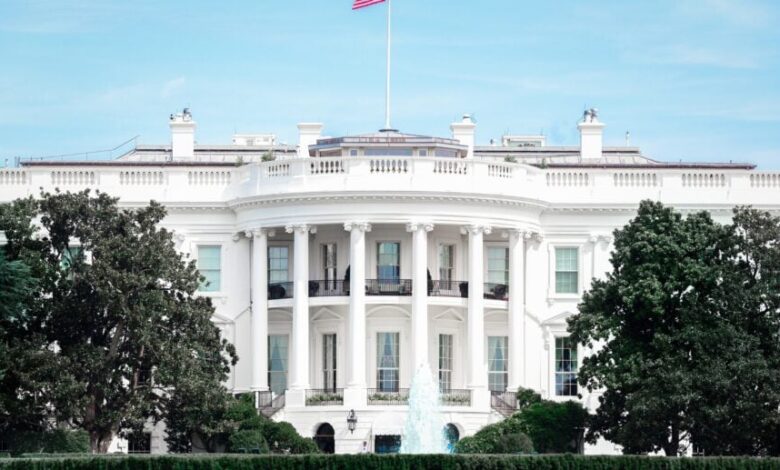
The most direct impact that presidents have on our day-to-day lives is their economic policies. And as real estate investors, those policies can make or break our investments—or even our careers.
So, how might the two candidates’ economic and housing agendas impact us as investors?
Since I know you’re wondering about my own “agenda” and what “spin” I’m putting on this article, I’ll tell you right now that I dislike both candidates and will be unhappy no matter who wins in November. Consider me an equal-opportunity hater.
I don’t have a horse in this race—but I do want to prepare my portfolio for the headwinds that I see each candidate bringing if they win. The thing is, those headwinds are completely different for each candidate.
Except for one, that is. But we’re getting ahead of ourselves.
Here are the real estate-related risks I see from each of the two major candidates and how you might protect your portfolio from each.
Financial Risks from Trump’s Policies
Trump’s economic policies might seem disparate, but they all have one thing in common: They’re inflationary.
You don’t have to be an economist to understand that when you impose tariffs on imports, those goods (and everything manufactured from those components) cost more for the American consumer. And Trump loves his tariffs. He’s proposed a 60% blanket tariff on all imports from China and a 10% standing tariff on imports from everywhere else.
Then there are his proposed tax cuts, which, by their very nature, are designed to stimulate the economy. And often, the economy does need stimulating.
But do you know what happens when you overstimulate the economy? Inflation, which is something we’re now all too familiar with, given the over-stimulus of the economy back in 2020-2021. And it’s something Jerome Powell and the Federal Reserve have spent the last two years battling.
Of course, Donald Trump doesn’t like Jerome Powell. He doesn’t like the very idea of an independent Federal Reserve and has argued that it’s within his power as president to fire Fed chairs and install his own crony—one who he can then order to lower interest rates.
Don’t get me wrong: There’s a time and a place for tariffs, tax cuts, and low interest rates. But they all come with inflation risk, and I personally have little trust in Trump’s discretion for not overheating the economy.
Reducing inflation risk under a second Trump presidency
Facing higher inflation risk, investors can find shelter in real estate equity, precious metals, and stocks. Watch out for fixed-interest debt investments like notes and bonds once interest rates drop again.
For real estate investments, it also doesn’t hurt that Trump would almost certainly lobby Congress to extend bonus depreciation. That featured prominently in his signature legislation from the last time around, the Tax Cuts and Jobs Act of 2017.
People tend to pay the going rate for real estate, regardless of the value of currency. As for stocks, it turns out that they actually hedge against inflation pretty well.
There’s another asset class poised to do well under a second Trump presidency: cryptocurrency. I don’t want to go down the crypto rabbit hole—I consider it speculation, not investing—but Trump’s sudden coziness with the crypto industry has proven one of the surprises of this campaign season.
Financial Risks from Harris’ Policies
For real estate investors, the financial risks from Kamala Harris’ policies come from two directions: higher taxes and higher regulation.
On the regulatory side, Harris has a long history of protectionist policies for renters. She has called housing a human right and as a U.S. senator, proposed the Rent Relief Act of 2018 that would subsidize renters who spend more than 30% of their income on housing. (As a renter myself, that sounds like an invitation to go spend more on rent and enjoy some free subsidies, but I digress.)
More recently, the Biden-Harris White House proposed a nationwide 5% rent stabilization law. The administration also funded an extra $5.5 billion initiative at HUD to prioritize affordable housing regulations.
In short, expect a Harris presidency to come in hot with housing regulation on multifamily investors.
Harris has also consistently called for higher taxes on businesses and successful individuals. In her 2020 presidential campaign, she called for raising the corporate tax rate from 21% to 35%.
She has also called for raising the top individual income tax rate to 39.6%. Additionally, she proposed a new blanket 4% tax on all families earning more than $100,000. Oh, and raising the Medicare tax from 3.8% to 5% for higher-earning taxpayers.
Relevant to real estate investors, the Biden-Harris administration called for more than doubling the capital gains tax rate, up to 44.6%. Yikes.
The administration has also called for eliminating the 1031 exchange.
Reducing regulation risk under a Harris presidency
Let’s start easy by avoiding all the housing regulations that Vice President Harris wants to add: Just don’t invest in residential rental real estate.
In particular, watch out for multifamily. Multifamily real estate syndications will find themselves in her crosshairs if she wins the election. Smaller landlords with a few units would likely avoid the worst of the regulation blitz.
Know what types of real estate won’t fall under her regulatory crusade? Everything else. Industrial, retail, office, raw land, agricultural, short-term rentals—they should all be safe.
In SparkRental’s Co-Investing Club, we’ve intentionally started de-emphasizing multifamily. We’ve been forming more private partnerships for house flips, spec home construction, and land flips. We’ve also started looking to diversify as much as possible, although we still look at plenty of multifamily deals when we meet each month to vet investments together.
Reducing tax risk under a Harris presidency
Avoiding higher tax liability is a tougher nut to crack. You can invest through a self-directed IRA or solo 401(k) to either avoid taxes now or let your investments compound tax-free with a Roth account.
That said, retirement accounts may not be safe from a Harris administration. The Biden-Harris White House has proposed reducing retirement account protections for higher earners.
You can’t count on 100% bonus depreciation being extended, either. Even so, I expect the “lazy 1031 exchange” to keep working well for passive real estate investors like myself. These get even easier when you invest $5,000 at a time, like we do in our Co-Investing Club, instead of the typical $50,000 to $100,000 if you invest in real estate by yourself.
In short, the tax landscape could shift dramatically. Stay on top of tax changes, and set aside some time to sit down with your tax advisor to adjust your tax plan.
When in doubt, you can always move overseas like I did, to take advantage of the foreign earned income exclusion!
Financial Risk from Both Candidates: Record Spending
Now that I’ve infuriated every single reader by critiquing their candidate’s policies let’s take it a step further: Whether Trump or Harris wins, I expect record federal spending.
Kamala Harris has always supported higher spending and higher taxes, as I’ve touched on. And Trump? The federal government added $7.8 trillion of debt under his first administration, and his executive actions and signed legislation are expected to cost $8.4 trillion over the next 10 years.
So, no matter who wins in November, I expect the federal budget and deficit to keep ballooning.
To me, that suggests higher taxes and inflation in the long term: higher taxes to pay a higher debt bill and higher inflation as the government prints more money to reduce the real value of existing debt by inflating it away.
With or without a major geopolitical crisis in the next decade, I believe that higher taxes and inflation are coming.
Final Thoughts
On one hand, I believe that people get too emotionally charged in elections. Do you know what’s more important than who sits in the Oval Office? Your personal relationships—which many Americans are wrecking with their political intolerance of anyone who doesn’t stand in the same echo chamber as them.
On the other, presidents do create policies that affect our lives. Rather than getting angry because I don’t like whichever candidate ends up winning, I simply plan to adjust my financial plan.
If Trump wins, I plan to protect against an overheated economy and inflation. If Harris wins, I’ll keep a close eye on tax changes and prioritize nonresidential real estate investments over multifamily.
As the election gets closer, our Co-Investing Club plans to hold a live workshop on this very topic, diving deep into the financial implications of each candidate winning. Policies will change in 2025, and it’ll help to get a head start in November.
America won’t burn down, no matter which candidate wins. Hug your family and friends even if you disagree with their politics. Better yet, try to actually understand where they’re coming from.
Find the Hottest Deals of 2024!
Uncover prime deals in today’s market with the brand new Deal Finder created just for investors like you! Snag great deals FAST with custom buy boxes, comprehensive property insights, and property projections.

Note By BiggerPockets: These are opinions written by the author and do not necessarily represent the opinions of BiggerPockets.
Source link




